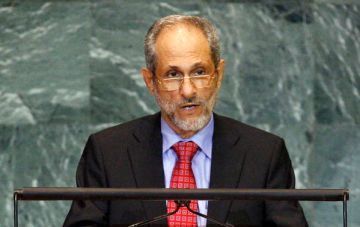Sudan’s conflicts driven by resources, official says
April 18, 2012 (KHARTOUM) – A prominent Sudanese official has opined that the ongoing conflicts in his country are essentially a war over resources, urging increased production to confront them.

According to Sudan’s official news agency SUNA, Al-Atabani urged efforts to achieve social justice in order to “obviate the pretext of marginalisation” used by some.
He further warned that Sudan is facing political, economic and security challenges, citing the example of the war in the regions of South Kordofan and Blue Nile which he attributed to unimplemented provisions of the 2005 Comprehensive Peace Agreement (CPA) between Sudan and South Sudan.
The presidential assistant called for prioritising economic issues as they affect national security. He also emphasised the importance of creating internal consensus on existing challenges represented in the upcoming constitution and issues of national identity.
Sudanese officials generally tend to deny or ignore the widely-cited opinion that the concentration of wealth and power in the center as opposed to the marginalised peripheries is to blame for the country’s chronic conflicts.
Analysts say that oil resources are a huge driver of the ongoing war between Sudan and South Sudan over Heglig and other border areas.
This year, the newly independent state of South Sudan shut down its oil production that can be exported only through pipelines in the north. The two neighbours failed to agree on oil transit fees to be paid to Khartoum prompting the latter to confiscate part of the crude as ‘payment in kind’.
(ST)
